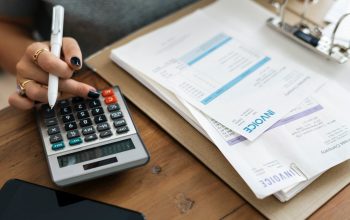Top tips for your business this new year, use this chance to grow your business, don't repeat mistakes and take...
For many outside the accounting or legal professions, it’s fairly common for people to be unaware of the existence of Licensed Insolvency Practitioners, much less what they do. Their first encounter with an Insolvency Practitioner is normally as a result of a referral from an accountant or financial advisor in relation to unmanageable debt or financial difficulty.
For many, whether they be dealing with personal debt or business insolvency, being referred to an Insolvency practitioner marks the point in their financial woes where circumstances start to improve.
What’s the role of Insolvency Practitioners?
While there are many firms and organisations which can help with problem debts and financial advice, there are some options for dealing with debt which are only able to be offered by Licensed Insolvency Practitioners.
Licensed Insolvency Practitioner is a generic term and the Insolvency Practitioner (IP) is more usually known by the role that is being played during a formal insolvency process. For example:
- Acting as the Supervisor or Nominee in an IVA (Individual voluntary arrangement)
- Acting as the Trustee in a Bankruptcy,
- Acting as the Administrator in a company administration
- Acting as the Liquidator in a company Liquidation
Whichever role the IP is holding, they are obliged to act in accordance with the law and exercise reasonable care and skill in the way they carry out their duties.
How Are Insolvency Practitioners Regulated?
Because of the special roles and enhanced powers of Insolvency Practitioners, there are strict criteria for becoming an IP.
Many Insolvency Practitioners have a background in either Law or Accounting and before obtaining a license to practice must pass JIEB (Joint Insolvency Examination Board) exams and spend some time working in the industry to gain experience and satisfy the regulator (a recognised professional body such as ICAEW or IPA) that they are suitable to hold a license as an Insolvency Practitioner. Only those holding a license issued by a recognised licensing body can act as an IP.
To remain IP’s, Insolvency Practitioners must also continue to comply with the ethics code set out by their licensing body, continue their professional education and take note of guidance notes issued from time to time. Licensing bodies also carry out regular monitoring visits.
Contact Insolvency Practitioners With Confidence
If you’ve been referred to an insolvency practitioner, you’re in good hands. As a justifiably well regulated profession, you can be assured that your IP will help you deal with your unaffordable debt, offer advice and provide a professional service in accordance with very strict criteria.
At Lines Henry we know that financial difficulties, whether they be personal or through your business, can be some of the toughest times to deal with. We pride ourselves on providing the very best solutions whatever your circumstances as well as relieving the worry and stress that these difficulties can cause.
The journey which led you to us is likely to have been long and stressful, but once you contact us, you’ll find that your journey is nearing its end, allowing you to leave your worries behind.
Speak to us, we can help.



